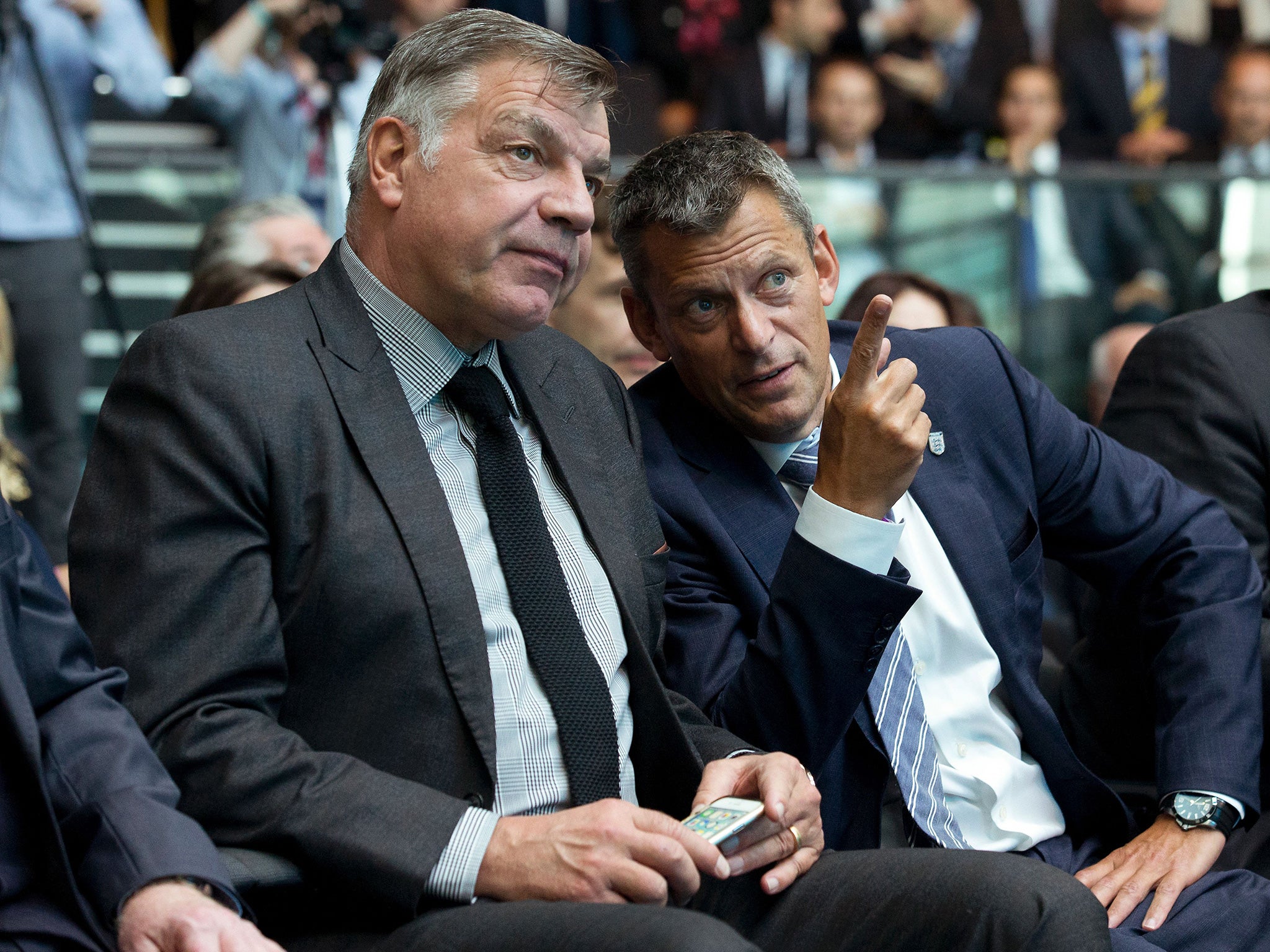Sam Allardyce: Martin Glenn took the easy option by letting England manager fall on his sword after undercover sting
In terms of rule-breaking, the FA cannot justify the 61-year-old’s dismissal on the evidence of the footage published by the Telegraph

For a man who identified the ‘brittle’ nature of England’s footballers as a recurring fault line in the country’s repeated failure to perform at major tournaments, it is probably to be expected that Martin Glenn, the Football Association’s chief executive, should panic and take the easy option at the first sign of turbulence in Sam Allardyce’s 67-day reign as England manager.
Faced with the Daily Telegraph’s expose of Allardyce, accompanied by the surreptitiously-filmed grainy footage which always adds a grubby layer of sleaze to these stings, Glenn had two options.
He could have hauled Allardyce into Wembley, issued a severe reprimand to the man he selected as Roy Hodgson’s successor, and then told the waiting world that England and Allardyce face the serious business of back-to-back World Cup qualifiers against Malta and Slovenia next month and that the matter was closed.
Or he could swing the axe, project himself as a strong leader and ensure that he marched in step with those shouting loudest that Allardyce had brought shame on the FA and football in general.
In the end, Allardyce saved him a job by resigning, but that is ultimately semantics. Glenn did not fight to keep him.
Sanctioning Allardyce’s departure is a classic case of a chief executive acting on what he believes is expected of him by the outside world.
Yes, Allardyce showed himself to be incredibly naïve by being drawn into the situation that ultimately cost him is job, but in terms of rule-breaking, the FA cannot justify the 61-year-old’s dismissal on the evidence of the footage published by the Telegraph.
Allardyce has damaged his reputation and that of his employers, but he stopped short of signing up to a role which would have been a clear-cut case of a conflict of interest.
Sanctioning Allardyce’s departure is a classic case of a chief executive acting on what he believes is expected of him by the outside world.
Perhaps Allardyce sensed the trouble he was heading towards, having been the subject of a Panorama investigation into football corruption in 2006.
There is no smoking gun within the Telegraph revelations, but if Glenn is so concerned by the damage caused to the FA’s reputation, then why did he appoint Allardyce in the first place?
How thorough was his due diligence? What questions did he ask of Allardyce about the Panorama allegations?
Or did the man who pensioned off Captain Birdseye during his previous job as a marketing guru fail to probe the former Bolton and Newcastle manager about the clouds hanging over his past?
But for a CEO to part with his own appointment less than three months after handing him the job in the first place, it suggests flaws in the recruitment process which ultimately stop at his door.
Which may explain why Glenn left Allardyce twisting in the wind.
If you get rid of the bad guy, you are not the focus of attention.
The hardest decision would have been to stand by his man and turn a deaf ear to those clamouring for blood, but English football, as Glenn has admitted, goes weak at the knees when the pressure is on.
And the FA’s chief executive has just delivered further evidence of that.
Subscribe to Independent Premium to bookmark this article
Want to bookmark your favourite articles and stories to read or reference later? Start your Independent Premium subscription today.

Join our commenting forum
Join thought-provoking conversations, follow other Independent readers and see their replies